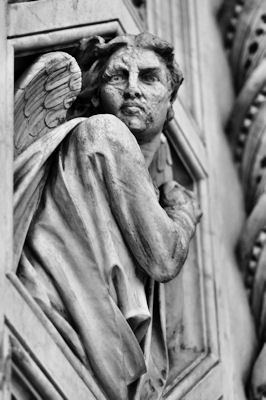 I only met her once. It was summertime, and I was riding with my dad out to the airport. As an amateur pilot, he was required to log a certain number of hours of flight time per year in order to keep his pilot’s license, and we would often take little trips to neighboring Wisconsin just for the afternoon. The car sped over the long straight roads, and I looked out over the endless fields of corn that lined both sides of the road. Heading up route 38 towards the Dekalb airport, the car made an unexpected turn, and we pulled up to a small yellow house in the middle of nowhere.
I only met her once. It was summertime, and I was riding with my dad out to the airport. As an amateur pilot, he was required to log a certain number of hours of flight time per year in order to keep his pilot’s license, and we would often take little trips to neighboring Wisconsin just for the afternoon. The car sped over the long straight roads, and I looked out over the endless fields of corn that lined both sides of the road. Heading up route 38 towards the Dekalb airport, the car made an unexpected turn, and we pulled up to a small yellow house in the middle of nowhere.
“This’ll just take a minute,” he said, and I obediently got out of the car and followed.
The woman who answered the door was clearly surprised by our visit, but appeared to know my dad pretty well. Her eyes darted about as she showed us inside, and I wondered if she was a patient of his who owed him money. At the age of nine, I had no idea of how doctors got paid for their doctoring, and looking back on it, the tension I sensed between them may have been interpreted by me as debt.
The house was smaller than the houses in our neighborhood. The front porch and living room were filled with chairs and couches in various states of disassembly. The air smelled hot and dusty, like the fields of corn that surrounded the house. Her husband was an upholsterer, and white cotton batting poked out of every crevice and corner of the room as if a snowstorm had come in July. I wondered what we were doing there, in this small, messy place. Perhaps, I thought, my father was picking up a chair that he had had re-done—a gift for my mother—and I was in on the secret. The man of the house was nowhere to be seen, though, and I wondered if this was a wasted trip.
“Would you like some lemonade, honey?” the woman asked me. I must have said yes, because soon a glass of something cool and pink was placed in my hand. The glass was sweating in the heat, and I gulped it down, wiping my mouth with the back of my wrist. She looked at my face as I drank and seemed to be looking for signs of familiarity. Her lips were full and dark with lipstick, and she was rounder than my mother. “You look a lot like your dad,” she said. Her scrutiny made me uncomfortable, so I asked her if I could use the bathroom. She pointed me down the hall.
The bathroom was clearly hers, filled with flowery wallpaper and a make-up mirror with bulbs all the way around. I hunted around for a light switch, but then gave up, my eyes becoming accustomed to the weak light from the tiny window. There were bottles and vials of perfumed stuff, and under different circumstances, I could have played there for hours, making myself up to look like a movie star. My mother didn’t have very much make-up at home. I washed my hands for an extra long time, lathering them with rose-scented guest soap.
When I came out of the bath, the house was silent. I retraced my steps and found the front door. My dad was sitting in the front seat of the Cadillac, and I didn’t see the woman anywhere. He started the engine before I opened the car door.
“Hurry up,” he said. Then, he threw the car into reverse, sending gravel flying as we backed down the drive. I looked out the car window and could just make out a face looking out from the screened door. The face disappeared again as we raced toward the highway, and I watched the house grow smaller and smaller against the sky.
—
Lily White is a saxophone player and writer living in Brooklyn, New York. Born and raised in rural Illinois, she now divides her time between performing, playing with her daughter, and trying to find a legal parking place.
